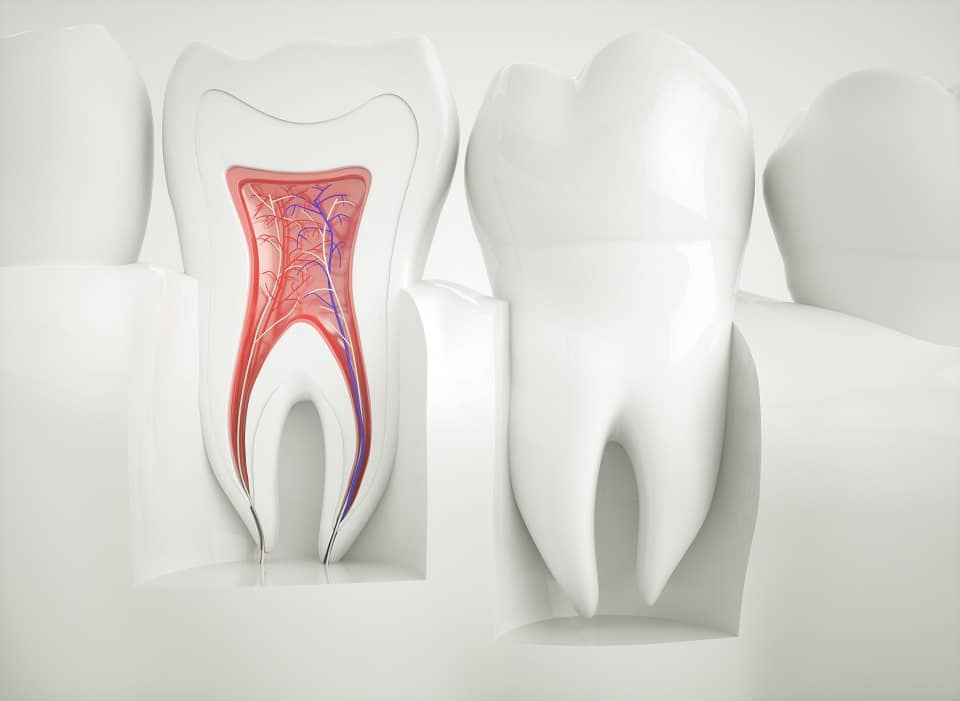Most patients hope that the only reason they will ever visit their dentist is for routine cleanings and examinations–where they always expect to hear that they are in good oral health. Your dentist would prefer this as well, and therefore invests a lot of her time and effort in preventive dentistry procedures. However, despite the very best efforts by both your dentist and yourself, there are still those rare occasions where a tooth becomes infected and needs aggressive treatment. Wherever possible, your dentist will try to save as much of your natural tooth as is viable, and this is why she may opt to perform a root canal.
Dispensing With Root Canal Myths
It can sometimes occur that a more minor dental issue becomes serious simply because it is not diagnosed and treated quickly and aggressively. Patients are often reluctant to undergo certain dental procedures because they are worried about what these procedures may involve, which is understandable. Unfortunately, waiting to treat a tooth that is infected and requires a root canal could mean an exacerbation of the issue, which in turn means even more extensive treatment procedures will be necessary. The worst part of all this is that much of a patient’s reluctance is based upon what they’ve heard about certain procedures–”facts” which actually turn out to be myths. To that end, following are some of the most common myths about root canals:
- Root canals are unnecessary if the affected tooth doesn’t hurt. It is true that some teeth that require root canals are sensitive and painful. This is because the inside of the tooth, where the infected tooth pulp lies, also contains nerve endings. However, if the nerve endings in the tooth die, there will be no pain response to the infection. Your dentist will use x-rays and visual examinations to determine whether a root canal is necessary to remove infected pulp and harmful oral bacteria and to preserve what remains of natural tooth structure. Don’t use pain, or the level of pain, to decide whether a root canal is necessary.
- Root canal procedures are extremely painful. An infected tooth can be extremely painful–but a root canal procedure is anything but painful. In fact, receiving a root canal can be an incredible relief if you have been dealing with the aching or throbbing pain of an infected tooth. Your dentist will administer local anesthetic to the gum surrounding the infected tooth prior to beginning the root canal procedure, and this will ensure that the area is numb and pain-free throughout the procedure. Once your dentist has removed all the infected tooth pulp and bacteria, and cleaned and sealed the tooth, this eliminates the source of extreme pain and discomfort so that you can once again speak and eat normally and comfortably.
- Root canals can cause illness. Root canals are normally needed after harmful oral bacteria have collected in the pulp of a tooth and caused damage. This procedure cleans that harmful oral bacteria out of the tooth and the mouth–it does not introduce new bacteria to the mouth. It is therefore illogical to assume that root canals are a potential source of illness, while it is more logical to assume that failure to receive a needed root canal may be a source of illness.
- Root canal procedures must be repeated often. There are a very rare few patients who have needed their root canal procedure to be redone, or have even needed to have their tooth removed. What you may not know is that this is not because the procedure itself is ineffective or only yields short-term results. Patients with poor oral hygiene habits are more likely to struggle with oral health, even after receiving restorative dental procedures like root canals. Some patients opt not to have a dental crown placed over a root canal, which is recommended in order to help strengthen the weakened tooth. Unfortunately, this can allow the tooth to crack or break more easily in the future, which may necessitate a new root canal or even tooth removal. However, patients who maintain good oral hygiene habits and follow their dentist’s advice usually have no difficulty experiencing the many benefits of root canals for a considerable period of time.
When it comes to root canals, one final, extremely important fact that every patient needs to remember is that regular dental examinations and cleanings every six months can reduce or even eliminate a patient’s potential of developing a root canal. Your dentist can spot oral health issues just as they are beginning to form, long before they have caused a situation that necessitates a root canal, and plenty early enough to resolve them.
For more information about root canals, contact Dr. Saferin today!


